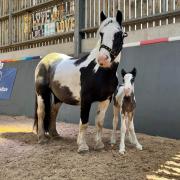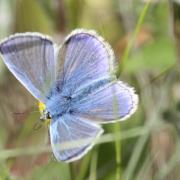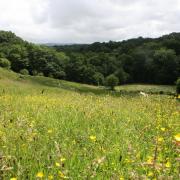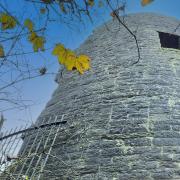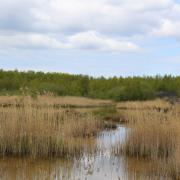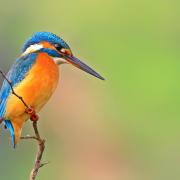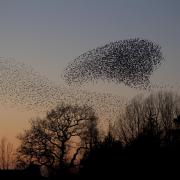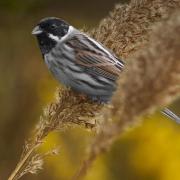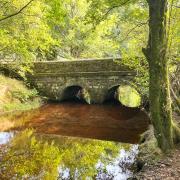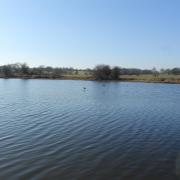Two young women have unusual jobs – revealing the secrets of the Irish Sea and helping to protect its inhabitants for future generations. Alan Wright reports

Two young women with a shared passion for the North West coast will be helping to raise the profile of the Irish Sea’s wonderful wildlife and its stunning shoreline environment.
The Lancashire coastline attracts millions of people every year, but only a small percentage realise its importance. That will all change if Amy Bradshaw and Sally Tapp have their way.
They are part of the The Lancashire Wildlife Trust team who will be spreading the word about the importance of the sea and its coastline.
Both Amy Bradshaw and Sally Tapp have earned full-time jobs after spending a year as North West Marine Trainees with the NW Wildlife Trusts. Trainees work throughout the region, spreading the word and attending enough events to fill the biggest calendar.

Amy is the Fylde sand dunes officer, working alongside the council. It is very much about community engagement and education, focusing specifically on raising awareness of the biodiversity and conservation of the dunes and their role in flood defence
Sally started this year as marine community engagement officer, offering an opportunity to deliver a programme of inspirational and engaging marine activities that will raise awareness of the importance of marine life in Liverpool Bay.
‘Often people have no idea about the diversity of life just offshore in our Irish Sea and recent surveys have shown that not many people are aware of the threats to our marine environment,’ she said.
‘In the North West, the Irish Sea has often been misrepresented as muddy and lifeless so I can’t wait to share my passion and enthusiasm for the marine environment with others and to open up a whole new world to people who will be delighted to find out that we have so much amazing wildlife around our coast.’

Amy’s work also involves practical activities aiming to make the dunes a better place for both wildlife and people. She said: ‘It is really important that we protect them as they are such an important feature.’
Another aspect of her role is to deliver The Living Seas, a project designed to highlight the need for action to protect this unique habitat with key messages delivered through Beach School, which involves youngsters. She has teamed up with Park View 4U in Lytham to use the coast to give children the opportunity to explore their natural surroundings. Amy said: ‘Unfortunately, there is currently a lack of awareness about the importance of our ‘Living Seas’ and the threats upon them. We aim to engage and inspire people to help them learn and connect with the Fylde coastline.’
Sally will also be working closely with local schools to help children to explore their coastline more by getting them out on the shore to investigate the huge diversity of marine life that can be found along the Sefton coast and in our Irish Sea.
‘As most of Liverpool Bay’s diverse wildlife is hidden beneath the waves, the best way to survey the Irish Sea is on beaches and in harbours,’ she said.

Love My Beach, which is an alliance of local people along the region’s coastline who regularly go on beach cleaning expeditions, will be involved. ‘We will carry out shore searches to record both our rocky shore species and the vast array of marine life that washes up on the strandline,’ said Sally. ‘We will also delve below the surface to uncover our sand and mud dwellers, ensuring that our marine species are recorded with Merseyside BioBank.’
There will also be sea watches to look out for our larger marine fauna – whales, dolphins, seals and sharks. Sally said: ‘All these records are essential in our campaign work lobbying for more Marine Conservation Zones in the Irish Sea and protection and better management of our marine environment for the future.’
Both sound like wonderful jobs, getting out onto our beaches and dunes, spreading the enthusiasm that all naturalists have for the Irish Sea, but it is hard to persuade the country’s decision makers.
In recent years a huge area of the Irish Sea off Fylde was designated as a Marine Conservation Zone but many others have been held back. The Wildlife Trusts are keen to create a network of these protected zone around the UK.

Amy and Sally’s work is making sure that The Lancashire Wildlife Trust is preaching to the converted when it speaks of the importance of the Irish Sea in the future.
Lancashire lass Amy says: ‘It is important for me to give something back to the coastline that gave me so much joy as a child.
‘I hope to recreate this feeling for many others in the area as I feel it is crucial for people to first understand and appreciate the marine environment so they feel connected enough to protect it for the future.’




